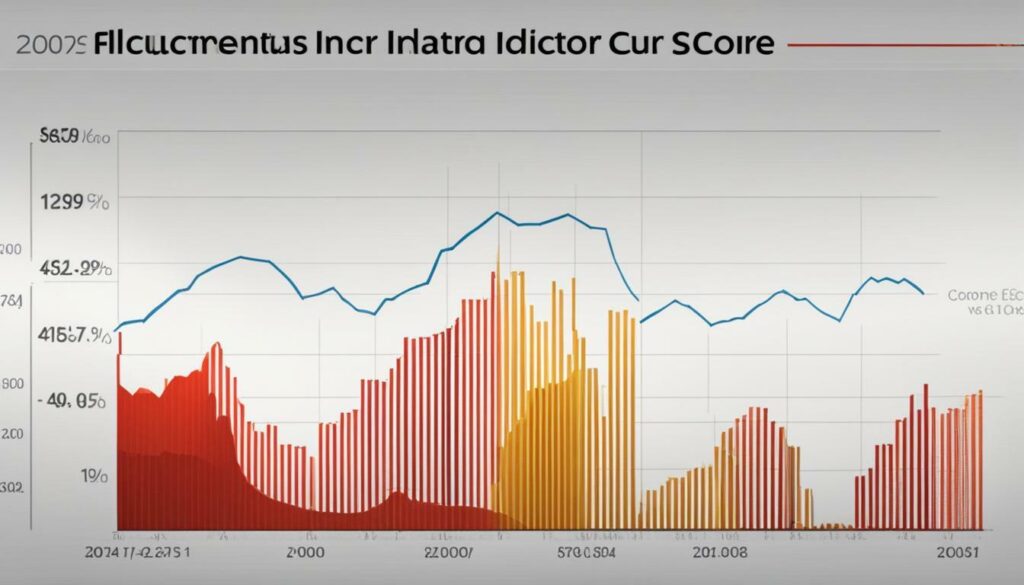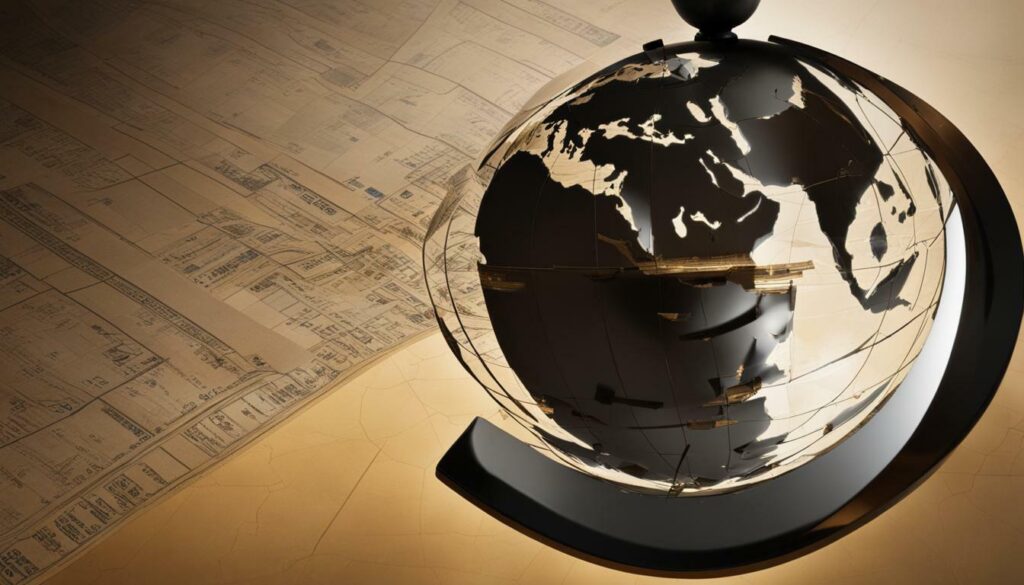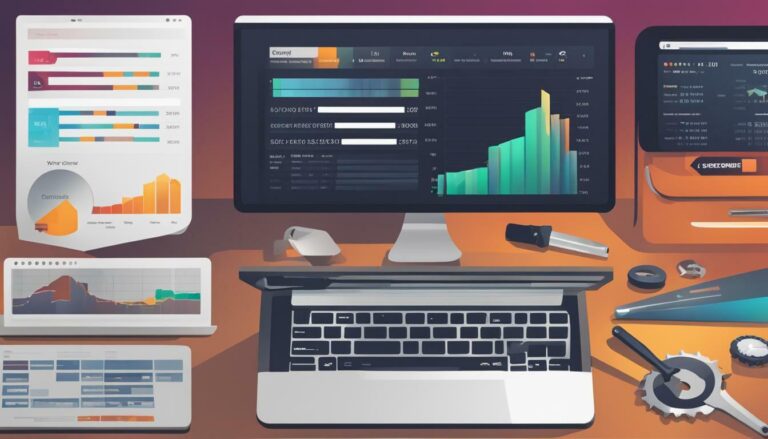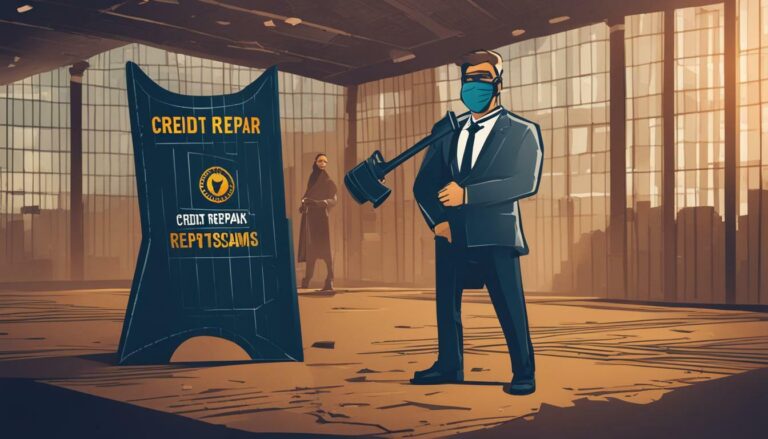Understanding How Global Economic Shifts Impact Credit Repair

The global economy is currently experiencing a slowdown due to various factors such as COVID-19 variants, inflation, debt, and income inequality, which has significant implications for credit repair. As economic conditions change, it is crucial to understand how these global shifts affect the credit repair industry and individuals’ ability to manage their credit in a changing global economy.
Key Takeaways:
- Global economic shifts, such as recessions, inflation, and debt, have a direct impact on the credit repair industry.
- In an economic downturn, businesses may face challenges accessing credit, collecting payments, and even risk bankruptcy.
- Small businesses are particularly vulnerable during economic shifts due to their limited financial resources and market power.
- Growth is expected to decelerate in the global economy, with emerging and developing economies experiencing a more significant slowdown.
- Rising inflation poses a concern, especially for low-income workers.
Understanding the relationship between global economic shifts and credit repair is crucial for individuals and businesses alike. By navigating the challenges presented by economic changes, proactive credit repair strategies can help mitigate risks and protect financial stability.
The Impact of Economic Shifts on Credit Repair Industry
Economic shifts, such as recessions, inflation, and debt, have a profound impact on the credit repair industry, affecting both businesses and individuals. These shifts disrupt economic activity, leading to declines in sales and profits for businesses of all sizes. The recent COVID-19 pandemic has been a prime example of how economic downturns can wreak havoc on credit repair.
🚨 TUIC Errors + Low Credit Score?
CreditScoreIQ helps you build credit faster by reporting utility bills to all 3 bureaus—while you dispute errors.
Start Building Credit Today →In a recession, businesses face various challenges in managing their credit repair. Accessing credit becomes more difficult, as lenders become cautious and risk-averse. Slowdown and uncertainty in the market can also result in slowed collections, making it harder for businesses to recover outstanding payments. In extreme cases, businesses may even face the risk of bankruptcy, unable to sustain their operations in a downturn.
Small businesses are particularly vulnerable in times of economic shifts. Unlike larger corporations, they often lack the financial cushion and market power to weather the storm. The impact of economic downturns on small businesses can be devastating, leading to closures and job losses. For these businesses, credit repair becomes a critical component of survival, as they seek ways to manage their debt and rebuild their financial health.

The current global economic outlook raises concerns for credit repair. Growth is expected to decelerate, affecting both advanced and developing economies. While advanced economies may experience a milder slowdown, emerging markets and developing countries may be hit harder. Rising inflation is also a significant concern, especially for low-income workers who bear the brunt of its effects. When credit repair becomes necessary in such an environment, individuals and businesses must navigate the challenges presented by economic shifts and seek strategies to mitigate their impact.
Understanding the link between global economic shifts and credit repair is crucial for both businesses and individuals. By acknowledging the profound impact of recessions, inflation, and debt on the credit repair industry, proactive measures can be taken to safeguard credit, navigate financial challenges, and seek professional assistance when needed. By staying informed and adaptable, one can better manage credit repair in a changing economy.
Challenges Faced by Businesses in Economic Downturns
Economic downturns pose significant challenges for businesses, including limited access to credit, slowed collections, and the risk of bankruptcy. During times of economic hardship, businesses often face difficulties securing loans or lines of credit to sustain their operations. Lenders become more cautious and selective, making it harder for companies to access the funds they need to cover expenses, invest in growth, or manage their credit repair.
Additionally, economic downturns can lead to slowed collections for businesses. As consumers face financial struggles, they may delay or default on payments to businesses, affecting their cash flow and ability to meet their own financial obligations. This slowdown in collections can hamper a company’s ability to address outstanding debts, resulting in a negative impact on their credit repair efforts.
Furthermore, the risk of bankruptcy looms large during economic downturns. Business closures and bankruptcy filings become more prevalent as companies face sustained financial challenges. Bankruptcy not only affects a business’s creditworthiness but also has lasting consequences for its future operations and ability to recover financially.
Managing credit repair during economic shifts requires businesses to be proactive and strategic. It is essential for companies to maintain open lines of communication with lenders, seeking alternative financing options when traditional avenues are restricted. They should also consider implementing stricter credit control measures, such as tightening credit terms and actively monitoring customer payment patterns. Seeking professional assistance from credit repair experts can also be beneficial, as they can provide guidance on managing debt repayment plans, negotiating with creditors, and rebuilding credit profiles.
Table 1: Strategies for Managing Credit Repair during Economic Shifts
| Strategy | Description |
|---|---|
| Strengthen Financial Management | Implement stricter financial controls, such as budgeting, cash flow forecasting, and expense reduction strategies. |
| Communicate with Creditors | Maintain open lines of communication with creditors, informing them of any financial difficulties and exploring alternative repayment options. |
| Monitor and Manage Credit | Regularly review credit reports, dispute inaccuracies, and actively work towards improving credit scores by paying bills on time and reducing outstanding debt. |
| Seek Professional Assistance | Engage credit repair experts to provide guidance on debt management, negotiating with creditors, and implementing effective credit repair strategies. |
By adopting these strategies, businesses can navigate the challenges posed by economic downturns and proactively manage their credit repair efforts. It is essential to stay informed about the ever-changing economic landscape and be prepared to adapt credit repair strategies accordingly.

Source: SEO Writing AI
The global economic outlook indicates a deceleration in growth, with emerging and developing economies expected to be more impacted than advanced economies, which has implications for credit repair. The current global economic landscape is facing several challenges, including the impact of COVID-19 variants, inflation, debt, and income inequality. These factors have contributed to a slowdown in economic activity and are likely to affect the credit repair industry.
“The COVID-19 pandemic has disrupted economic activity, leading to declines in sales and profits for businesses of all sizes.”
During periods of recession, businesses tend to face difficulties in accessing credit, experience slowed collections, and may even face bankruptcy risks. This challenging environment is particularly detrimental to small businesses, which lack the financial cushion and market power of larger enterprises. The vulnerability of small businesses underscores the importance of credit repair strategies in managing their financial health during economic shifts.
The global economic slowdown is expected to have varying impacts on different economies. Advanced economies are projected to experience a milder slowdown compared to emerging and developing economies. This divergence in growth rates can influence credit repair dynamics, as businesses and individuals in areas with more severe economic impacts may face greater challenges in repairing their credit. Additionally, rising inflation poses a concern, particularly for low-income workers who are disproportionately affected by its effects.

Understanding the link between global economic shifts and credit repair is essential in navigating the evolving credit repair landscape. By staying informed about the current economic outlook, businesses and individuals can proactively adapt their credit repair strategies to mitigate the potential risks and challenges posed by economic shifts. Seeking professional assistance and implementing proactive credit management measures can help safeguard credit and financial well-being even in a changing global economy.
Strategies for Managing Credit Repair in a Changing Economy
Managing credit repair effectively during economic shifts requires implementing proactive strategies and seeking professional guidance when necessary. In a changing economy, it’s crucial to stay informed about global economic shifts and their potential impact on your credit repair journey. By being proactive and adaptable, you can navigate financial challenges and safeguard your credit.
Here are some essential strategies for managing credit repair in a changing economy:
- Monitor your credit regularly: Keep a close eye on your credit reports and scores to identify any discrepancies or negative items. Regular monitoring allows you to address issues promptly and take necessary steps to repair your credit.
- Create a budget: Develop a comprehensive budget that aligns with your financial goals and income level. This will help you manage your expenses, prioritize debt payments, and ensure that you are living within your means.
- Reduce unnecessary debt: Pay down high-interest debts and avoid taking on new debt whenever possible. By focusing on reducing your debt burden, you can improve your credit utilization ratio and demonstrate responsible financial behavior.
- Seek professional assistance: If you’re struggling to manage your credit repair efforts or facing complex financial challenges, consider consulting with a credit repair professional. They have the expertise and resources to guide you through the process and help you achieve your credit goals.
“Managing credit repair effectively during economic shifts requires implementing proactive strategies and seeking professional guidance when necessary.”
Remember, credit repair is a journey that requires patience and persistence. By implementing these strategies and staying informed about global economic shifts, you can navigate the changing economic landscape and work towards achieving a healthier credit profile.

Understanding the intricate link between global economic shifts and credit repair is essential for individuals and businesses to successfully navigate the ever-changing landscape. As the global economy experiences a slowdown due to various factors such as COVID-19 variants, inflation, debt, and income inequality, the credit repair industry is expected to be significantly impacted.
The COVID-19 pandemic has disrupted economic activity, resulting in declines in sales and profits for businesses of all sizes. In times of recession, businesses may encounter challenges accessing credit, experience slowed collections, and even face the risk of bankruptcy. Small businesses, in particular, are vulnerable due to their limited financial cushion and market power.
Looking at the global economic outlook, growth is expected to decelerate, with advanced economies experiencing a milder slowdown compared to emerging and developing economies. Rising inflation is also a concern, as it disproportionately affects low-income workers. It is crucial for individuals and businesses alike to be aware of these shifts and their potential impact on credit repair.
Given these circumstances, proactive measures must be taken to safeguard credit and navigate financial challenges effectively. Seeking professional assistance when needed can provide valuable guidance in managing credit repair during economic shifts. By staying informed and adaptable, individuals and businesses can successfully navigate the credit repair landscape and ensure their financial well-being in a changing global economy.
FAQ
Q: How does global economic shifts impact credit repair?
A: Global economic shifts, such as recessions, inflation, and debt, can impact credit repair by creating challenges for businesses and individuals in accessing credit, experiencing slowed collections, and facing bankruptcy risks.
Q: What are the challenges faced by businesses in economic downturns?
A: Businesses in economic downturns may face difficulties accessing credit, experience slowed collections, and even face the risk of bankruptcy. Small businesses are particularly vulnerable due to their lack of financial cushion and market power.
Q: How does the global economic outlook affect credit repair?
A: The global economic outlook, including expected deceleration in growth and rising inflation, can have implications for credit repair. Low-income workers may be disproportionately affected by inflation, highlighting the need for strategies to manage credit repair in a changing economy.
Q: What are some strategies for managing credit repair in a changing economy?
A: Strategies for managing credit repair in a changing economy include safeguarding credit through proactive measures, navigating financial challenges, and seeking professional assistance when needed.
Q: What is the link between global economic shifts and credit repair?
A: Understanding the link between global economic shifts and credit repair is crucial in navigating the credit repair landscape. By staying aware of economic shifts and their impact, individuals and businesses can adapt their strategies to effectively manage credit repair in changing economic conditions.
Ready to Improve Your Credit?
Disputing TUIC errors is step one. Step two? Boost your score by reporting utility payments with CreditScoreIQ.
Get Started Now (Only $1 Trial) →3-bureau reporting • $1M identity insurance • Dark web monitoring





